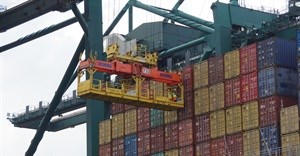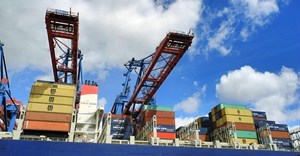Trending




 Sabre EMEA 2024 Awards: Razor PR, Retroviral top SA agenciesDanette Breitenbach
Sabre EMEA 2024 Awards: Razor PR, Retroviral top SA agenciesDanette Breitenbach
Elections 2024
Jobs
- Logistics/Stock Intern Centurion
- Driver Johannesburg
- Financial Manager Vereeniging
- Warehouse Manager George
- Logistics Coordinator George
- Procurement Specialist Johannesburg
#DesignMonth: Creating a transport marketplace with eShip

Tell us about eShip. How did it all start?
Emile McLennan: There was no one single point of inspiration for the platform, rather, it came about in the form that it is today through the amalgamation of different ideas and investigation into the different pain points of the transport industry. The idea of an internet platform to assist ordinary people with little shipping experience, as well as aid transport companies run at higher capacity, was a natural answer to the problems that kept coming up.
Why is eShip important? How is it changing the industry?
McLennan: eShip is attempting to bring the logistics industry into the 21st century. Currently, the industry is very inefficient, with the vast majority of vehicles operating with additional capacity available. Add to this the fact that on most of the return legs of the journey the trucks are empty, it becomes clear that there are massive savings to be made by simply improving the operational efficiency of transport companies, without them undergoing much change in terms of routes and scheduling.
Additionally, eShip also offers an e-commerce solution aimed at online stores looking to improve their delivery offering. Through the use of eShip’s API or plugins, the lowest shipping quote from SA’s leading courier companies is gathered in real-time at the point of checkout, as well as facilitating the booking and subsequent tracking. This benefits the merchant in the sense that they can offer significantly lower shipping rates to their customers due to the volume that the platform aggregates, as well as doing away with the need for contracts with individual couriers along with the addition of automating the booking process flow.
What has been the biggest challenge so far?
McLennan: Building a marketplace has its own unique set of challenges. There exists a base level of users, known as the critical mass, required in order to make the platform viable for both transporters and consignors. Getting the platform to the point where this benefit exists has definitely been the biggest challenge so far. Due to the novelty of the business, most people are unaware that such a solution even exists, thus, traditional advertising is not effective as people first need to be educated about the concept before any brand building can be performed.
What has been the biggest highlight for eShip?
McLennan: Securing a record investment of R5m on South Africa’s version of Dragons’ Den in 2014:
How successful has the project been to date?
McLennan: The platform started with a soft launch in 2014 and since then has grown nicely into an effective platform for shipping. It’s safe to say that if a consignor creates a listing, they will receive a number of competitive quotes within 24 hours, this is the benchmark that we initially aimed for and tells us that there is value in the marketplace. The e-commerce product has just been launched and thus it's a bit early to say, but it already seems to be growing beyond our initial expectations.
What do you see for eShip’s future?
McLennan: I see eShip as the household name for transport. Apart from having already simplified the shipping experience for ordinary people moving items irregularly, I see a transporter economy forming around the platform, giving small independent transporters the opportunity and resources to compete with the largest players in the industry. It’s also the goal to facilitate cross-border and international shipments in the near future.
What role does design and creativity play in the company?
McLennan: Being a technology company, it is important to ensure that everything we do is focused on making the product better. Design is incredibly important to the website, as a great deal of focus has been placed on making the process as straightforward as possible. Traditionally, transport has been a bit of a mystery filled with complicated industry lingo. We’ve done away with that in order to ensure that the platform is accessible to everyone. Furthermore, the magic of a product exists in its simplicity, thus, the ultimate creativity comes from the times we have to say no, so that we don’t get lost in all the clutter of trying to do too much, to too many people.
How do you keep the creative juices flowing and innovation going?
McLennan: Still being in the startup phase, one cannot take one day for granted or settle for complacency. The ultimate route to success for a startup is the accumulation of lots of short-term wins, all leading up to long-term sustainability. By having our feet on the ground and being actively involved in the trenches of the business, we’re able to understand what we need to be doing and how we should be doing it.









